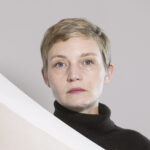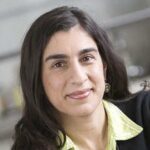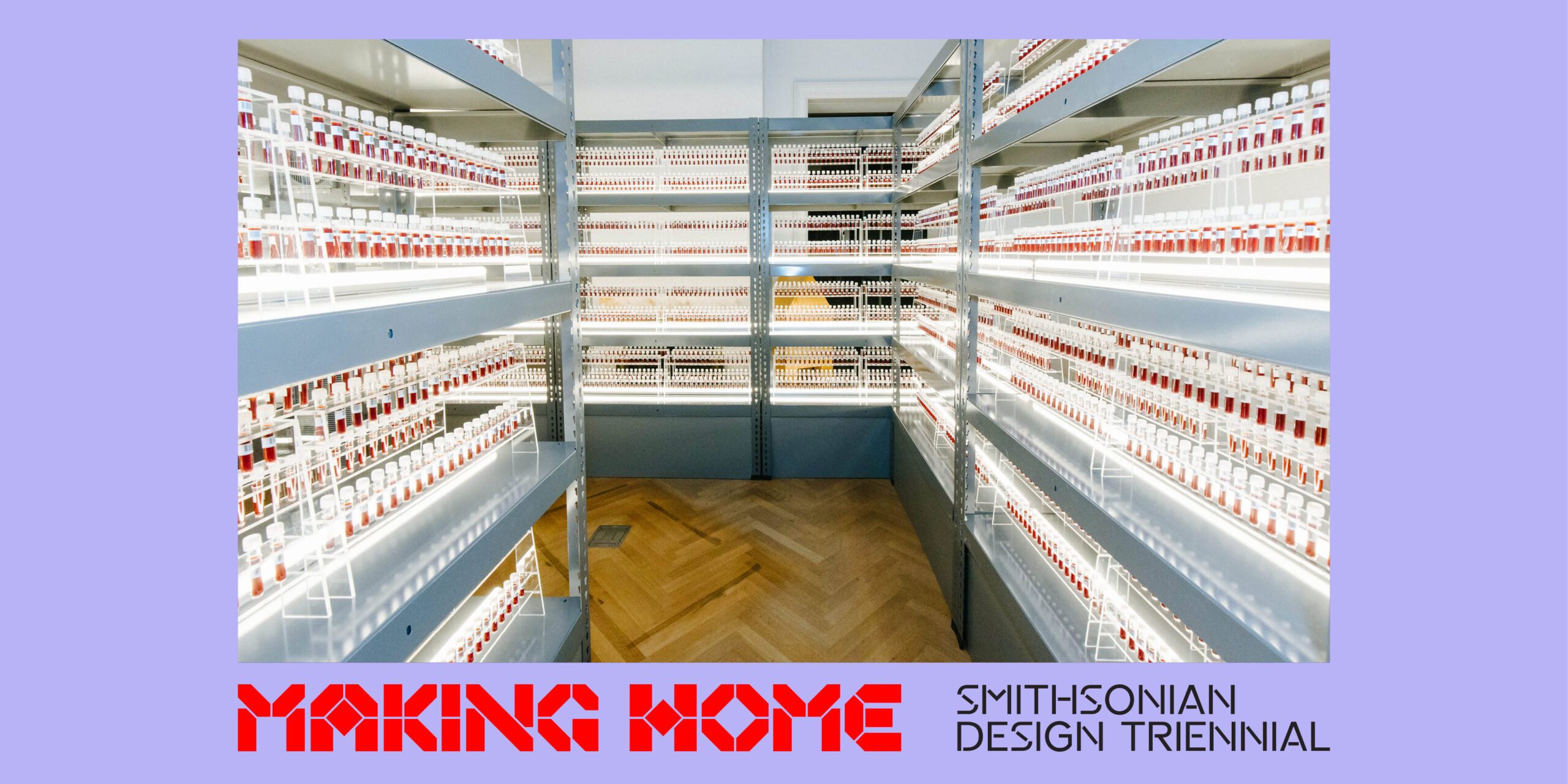Making Home Saturday Series: Is Home Where the Body Is? (Session 1) Presentation and conversation with artist Heather Dewey-Hagborg and biologist Katayoun Chamany
Join Cooper Hewitt for the next Making Home Saturday Series where we consider the hidden homes of our DNA with artist and biohacker Dr. Heather Dewey-Hagborg.
In Session 1, Dewey-Hagborg will discuss her installation and soundtrack for Making Home—Smithsonian Design Triennial, which explores the architectural and cultural footprint of so-called “biobanks.” Filled with biological samples routinely collected at hospitals and medical centers, biobanks house and preserve our medical specimens for public and private research, often conducted with minimal informed consent. Dewey-Hagborg will tell the story of her own investigative efforts to discover her “blood spot card”—the blood drawn at birth from every newborn to be screened for disorders. This program shares a more scientific interpretation of home, inviting participants to ponder how these repositories store genetic and health information on millions of Americans.
After her presentation, Dewey-Hagborg will be joined by biologist Katayoun Chamany for a brief conversation addressing the potential lives of our DNA at the intersection of surveillance, cutting-edge science, privacy, and legal and ethical concerns.
Then, join us for Session 2, a live performance of “Correspondence Song,” a musical version of Dewey-Hagborg’s exchanges with medical institutions and third parties as she attempts to track down her blood samples. The performance, composed by Niki Main, will include voice and acoustic instruments and will take place on the second floor right outside Dewey-Hagborg’s Triennial installation
About the Making Home Saturday Series
The Making Home Saturday Series is a quarterly program that pairs special guests with participants from Making Home—Smithsonian Design Triennial. The program’s two-part sessions include conversations on exhibition-related themes, including systems, belonging, memory, care, and building, as well as the contemporary concepts of home related to race, class, migration, climate, and technology.
SPEAKERS

Dr. Heather Dewey-Hagborg is a New York-based artist and biohacker who is interested in art as research and technological critique. Dewey-Hagborg has shown work internationally at events and venues including the World Economic Forum, the Daejeon Biennale, the Guangzhou Triennial, the Shenzhen Urbanism and Architecture Biennale, Transmediale, the Walker Center for Contemporary Art, the Philadelphia Museum of Art, and PS1 MoMA. Her work is held in public collections of the Centre Pompidou, the Victoria and Albert Museum, and SFMOMA, among others, and has been widely discussed in the media, from the New York Times and the BBC to Artforum and Wired. Dewey-Hagborg has a PhD in Electronic Arts from Rensselaer Polytechnic Institute. She is an Artist-in-Residence at the Exploratorium and is an affiliate of Data & Society. She is a founding board member of Digital DNA, a European Research Council funded project investigating the changing relationships between digital technologies, DNA, and evidence.
 Katayoun Chamany is the Mohn Family Professor of Natural Sciences and Mathematics and Professor of Biology in the Interdisciplinary Science program of Eugene Lang College and the Director of the Academic Science Labs at The New School. Trained as geneticist and cell biologist, she uses a STREAMD framework (STEM + Arts +Design+ Responsibility) to develop curricula that promotes ethical and responsible use of biotechnologies through provocation. As a Leadership Fellow for Science for New Civic Engagements and Social Responsibilities (SENCER), she designed the open access Stem Cells Across the Curriculum in collaboration with colleagues in the humanities, social sciences, policy, and design. For her contributions and leadership she has received The New School Distinguished University Teaching Award and University Social Justice Teaching Award, the Eugene Lang College Excellence In Faculty Advising Award, the William E. Bennett Award for Extraordinary Accomplishments in Citizen Science from SENCER, and the John A. Moore Award for Science as a Way of Knowing from the Society of Integrative and Comparative Biology. She received her Ph.D. in Molecular and Cell Biology at the University of California, Berkeley in 1996.
Katayoun Chamany is the Mohn Family Professor of Natural Sciences and Mathematics and Professor of Biology in the Interdisciplinary Science program of Eugene Lang College and the Director of the Academic Science Labs at The New School. Trained as geneticist and cell biologist, she uses a STREAMD framework (STEM + Arts +Design+ Responsibility) to develop curricula that promotes ethical and responsible use of biotechnologies through provocation. As a Leadership Fellow for Science for New Civic Engagements and Social Responsibilities (SENCER), she designed the open access Stem Cells Across the Curriculum in collaboration with colleagues in the humanities, social sciences, policy, and design. For her contributions and leadership she has received The New School Distinguished University Teaching Award and University Social Justice Teaching Award, the Eugene Lang College Excellence In Faculty Advising Award, the William E. Bennett Award for Extraordinary Accomplishments in Citizen Science from SENCER, and the John A. Moore Award for Science as a Way of Knowing from the Society of Integrative and Comparative Biology. She received her Ph.D. in Molecular and Cell Biology at the University of California, Berkeley in 1996.
AccessibiliTy & What to Expect
- Format: The program will begin with a brief welcome, then the speakers will engage in a presentation and conversation.
- About the space: Session 1 will take place in Cooper Hewitt’s Lecture Room on the ground floor of the museum. It is fully wheelchair accessible. Theater-style seating is available. Session 2 will take place on the second floor of the museum, accessible by wheelchair. The performance is standing room only. There is an accessible restroom on the ground floor. Read more about accessibility at Cooper Hewitt.
- Accommodations: Session 1 will have live CART captioning. If we can provide additional services to support your participation, email us at CHEducation@si.edu or let us know when you register. Please make your request as far in advance as possible—preferably at least ten days before the program date.
- Recording: The program will be recorded and posted on Cooper Hewitt’s YouTube channel within two weeks.
Support
Making Home—Smithsonian Design Triennial is presented in collaboration with Smithsonian’s National Museum of African American History and Culture. This project received federal support from the Smithsonian American Women’s History Initiative Pool, administered by the Smithsonian American Women’s History Museum; the Latino Initiatives Pool, administered by the National Museum of the American Latino; the Asian Pacific American Initiatives Pool, administered by the Smithsonian Asian Pacific American Center; and the Smithsonian’s National Museum of African American History and Culture.
Generous support is provided by the Henry Luce Foundation and the Terra Foundation for American Art.
Support is also provided by the Lily Auchincloss Foundation; Edward and Helen Hintz; re:arc institute; the Keith Haring Foundation; the Lemberg Foundation; Maharam; and the Graham Foundation for Advanced Studies in the Fine Arts.

